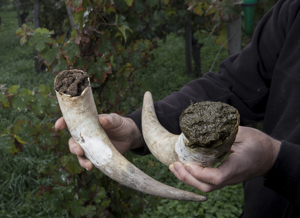As consumers are becoming increasingly concerned about environmental sustainability, health and food sources, a market is emerging around organic, biodynamic and natural wines. However, these terms can be confusing and difficult to differentiate, so I will attempt to explain these terms and provide some wine recommendations for each category.
Organic
Organic wines are those produced from grapes grown without the use of pesticides, fungicides, herbicides or chemical fertilizers, and must adhere to stringent requirements and certification processes set forth by a governing body (with different governing bodies having different requirements).
Organic vineyards are much easier to sustain in wine regions with stable climates and low disease pressure. Regions that are dry and windy, such as Alsace and the Rhone in France, suffer less from mildew, rot and harmful insects, making it easier to adopt organic practices. In fact, Europe produces almost 90% of all organic wines on the market. However, organic wines tend to be a little more expensive because organic vineyards produce lower yields of grapes, meaning growing and production costs are spread across fewer bottles of wine.
One of the biggest differences with organic wines is that the addition of sulfites to wines is prohibited. Sulfites have been used in winemaking for hundreds of years as a preservative to protect wine from oxidation and spoiling. Some level of sulfites are naturally occurring, so all wines contain sulfites, but organic wines contain less. A very small percentage of people have a sensitivity or allergy to sulfites that can cause headaches and other symptoms, and organic wines may help alleviate that problem. Keep in mind though, this does not mean that organic wines prevent hangovers!
Biodynamic
The father of biodynamics was Rudolf Steiner, an Austrian spiritual scientist, cultural philosopher and social reformer (and all-around oddball genius). His idea was to apply a holistic “circle of life” approach to the farm, encouraging biodiversity and self-sustainability. Biodynamics views the vineyard as one solid organism or ecosystem that must be treated holistically. Chemical fertilizers and pesticides are forbidden, and only natural materials (e.g., manure) may be used. There is are governing bodies that set standards and certify vineyards as biodynamic.
Biodynamics differs from organic agriculture in its belief that farming can be attuned to the spiritual forces of the cosmos, including linking harvesting to the phases of the moon. There are nine natural biodynamic preparations that can be used in the vineyard, some of which sound bizarre, such as burying cow manure in a cow’s horn over the winter, unearthing it in the spring, diluting the aged manure in 34 liters of water, and then spraying the mixture over the vineyard. Although there is some mystery as to how these concoctions work, they do seem to work.
Natural
There are no legal requirements, standards or certifications to label wines as “natural”, which makes defining it difficult. They are often organic or biodynamic, and usually produced by small independent growers.
Natural wines are unadulterated, made with very little intervention – no additives, sulfates, commercial yeasts, filtration, or oak influence. This results in wines that have funky, gamey, yeasty aromas and flavors, and are hazy in appearance. They tend to have more sour flavors than fruity flavors. Some can be very good and others can be downright weird. There is a certain thrilling unpredictability to natural wines.
Wine Recommendations
2017 The Eyrie Vineyard Pinot Gris, $18
2016 Rogue Vine Grand Itata, $20
2015 Tikal Natural, $20





